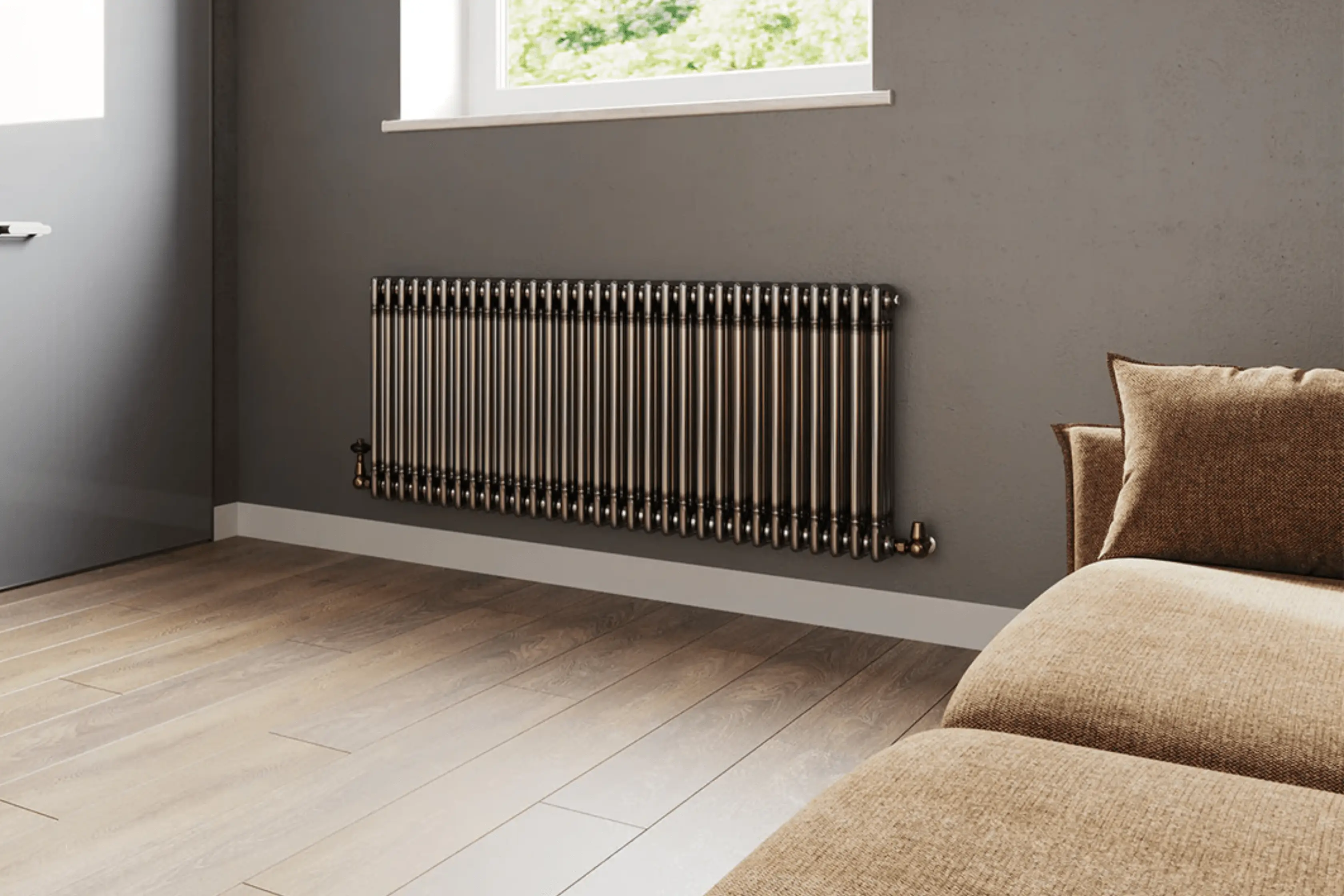When buying a radiator; you have the freedom to choose from a huge selection of shapes, sizes and finishes. In addition to these choices, you can also decide between a radiator made from either steel or aluminium.
But which is best?
In this expert Bathroom Takeaway guide, we are looking closely at both steel radiators and aluminium radiators. We will discuss the pros and cons of each, and ultimately answer the question of which is best for you.
Are Aluminium Radiators Any Good?
Aluminium, much like steel, is a proficient conductor of heat, making it one of the premier materials for radiator construction.
Its thermal conductivity greatly exceeds that of steel, which explains its widespread appeal among energy-conscious homeowners.
The environmentally friendly characteristics of the material, combined with its capacity for heating, render aluminium radiators an excellent option for individuals seeking a sustainable lifestyle.
These radiators warm up rapidly and efficiently distribute heat throughout the space.
Pro’s
- Great conductor of heat
- Aluminium radiators are recognised for their strength and long-lasting nature
- Aluminium radiators are highly efficient, making them an environmentally friendly option.
Con’s
- They heat up quick but they equally cool down quickly
- For larger rooms, it may be necessary to install larger or multiple compact aluminum radiators to ensure effective heating.

Are Steel Radiators Any Good?
The durability, conductivity, and strength of steel make it an ideal material for various types of radiators.
Due to its anti-rust, anti-corrosion, and anti-stain characteristics; stainless steel is regarded as one of the premier materials for radiators. The various properties of stainless steel suggest that it is engineered for longevity.
Pro’s
- Won’t rust and corrosion resistant
- High quality material
- Modern aesthetic look for a home
Con’s
- They take longer to heat up
- Highly robust and durable
Which Is Better, Aluminium Radiators Or Steel Radiators?
The choice of radiator is influenced by several factors; including usage, placement, and the insulation quality of your property.
If your home is well-insulated or you are in search of a more economical radiator, aluminium options may be ideal. However, for properties that are prone to drafts or for those who desire a radiator that provides extended heating, requires less upkeep, and has a longer lifespan, stainless steel radiators would be more fitting.
In terms of design, the selection is entirely yours. With our vast array of radiator choices, it is difficult to recommend one style over another.
If you prefer a more straightforward or traditional radiator design, aluminium radiators may suit your taste. However, if you are looking for a contemporary feature or a bold statement piece, steel radiators would be the better choice.
Frequently Asked Questions
Do Aluminium Radiators Rust?
While aluminium radiators are generally resistant to corrosion, it is important to note that they are not completely exempt from it.
Can You Mix Steel And Aluminium Radiators?
Technically yes, the integration of aluminum radiators into the current steel radiator system will not result in any conflicts on performance.






















